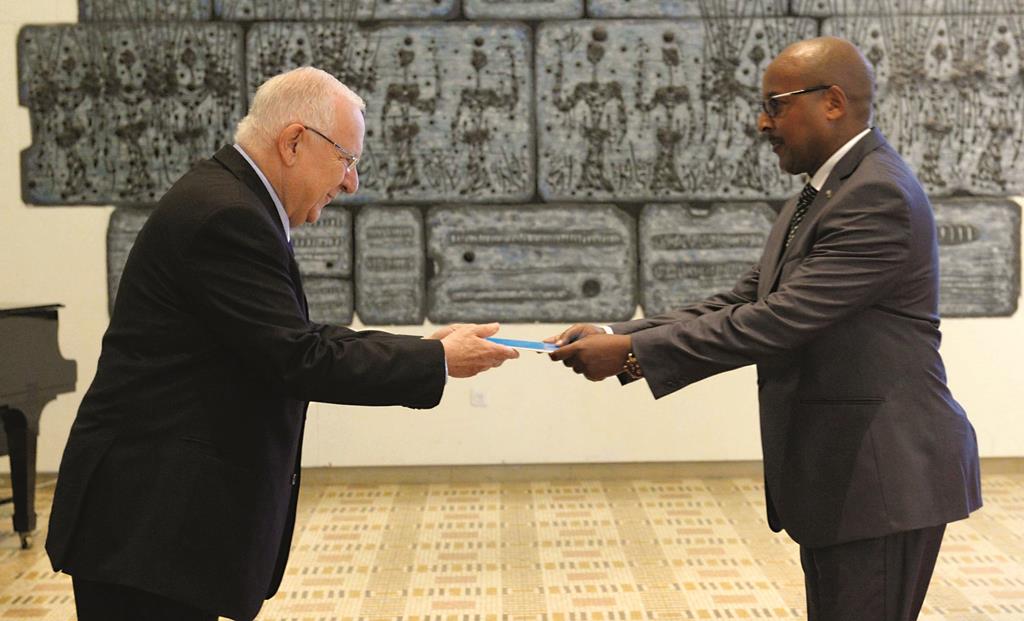Rivlin Criticizes Netanyahu for Anti-Iran Drive

Israeli President Reuven Rivlin stepped out of his primarily ceremonial role on Thursday to chide Prime Minister Binyamin Netanyahu for conducting an overzealous campaign against the Iran nuclear deal, and opening a “battlefront” with Washington that is isolating his country.
In three separate newspaper interviews, Rivlin joined the critics who say that Netanyahu’s head-to-head battle with the White House over Iran could ultimately hurt Israel.
“I am very worried about the battlefront that has opened up between [U.S. President Barack] Obama and Netanyahu and the [state of] relations between the United States and Israel,” he said.
“The prime minister has waged a campaign against the United States as if the two sides were equal and this is liable to hurt Israel.
“I must say that he understands the United States better than I do, but, nonetheless, we are largely isolated in the world,” Rivlin said.
“I have told him (Netanyahu), and I’m telling him again, that struggles, even those that are just, can ultimately come at Israel’s expense,” the president told Haaretz.
Netanyahu has answered such criticism, insisting that it is his duty to do everything possible to prevent the Iran deal, which would endanger Israel’s security, and that relations with the White House remain healthy despite the fierce dispute.
Meanwhile, the prime minister received backing from Malcolm Hoenlein, executive vice chairman and CEO of the Conference of Presidents of Major American Jewish Organizations, in response to his call for American Jewry to speak out against the Iran accord.
Mr. Hoenlein said on Thursday that the Iran issue does indeed require action.
“The situation with Iran is one that we haven’t seen in decades, Hoenlein said, adding, “You have to take the threats of dictators seriously.”
Hoenlein agreed with Netanyahu that he and other Israeli officials have an obligation to speak out on what they believe poses an existential threat to Israel. They should make the case against the accord “on the content, on the substance, and we will do the job of translating it into activity.”
Hoenlein also seconded Netanyahu in his assertion that, contrary to White House assertions, Israel is not alone in its opposition to the Iran deal. He has spoken to a number of Arab leaders, he said, and in private meetings they are very much against it.
In Europe, too, the consensus is an uneasy one. Hoenlein has heard from some European officials — including some in the P5+1 who signed the agreement — that it is flawed, that they are uncomfortable with it, but that they are following the U.S. lead.
This article appeared in print on page 6 of edition of Hamodia.
To Read The Full Story
Are you already a subscriber?
Click "Sign In" to log in!

Become a Web Subscriber
Click “Subscribe” below to begin the process of becoming a new subscriber.

Become a Print + Web Subscriber
Click “Subscribe” below to begin the process of becoming a new subscriber.

Renew Print + Web Subscription
Click “Renew Subscription” below to begin the process of renewing your subscription.











